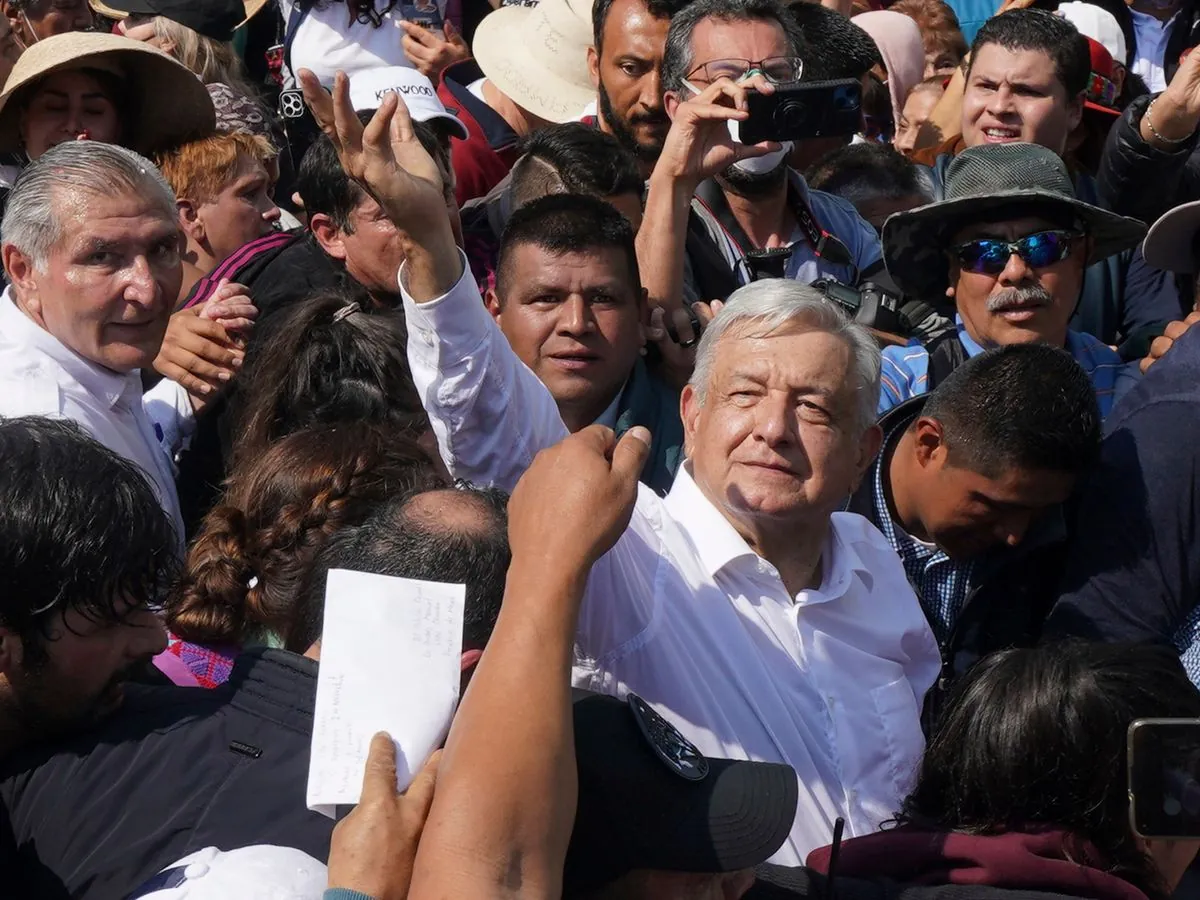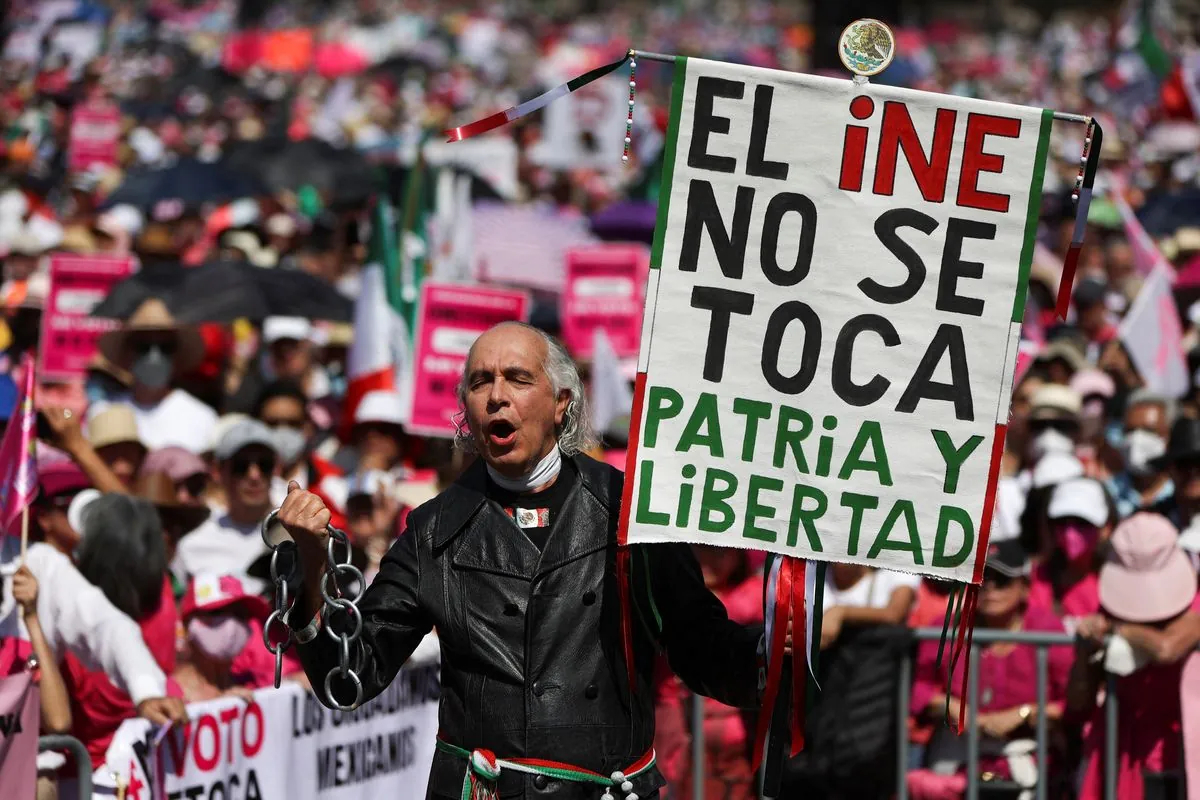Mexican President Rallies Support for Controversial Judicial Reforms
In his final month as president, López Obrador gathers massive crowd to back judicial changes, including popular election of judges. Critics warn of threats to democratic checks and balances.

As Andrés Manuel López Obrador enters his final month as Mexico's president, he has rallied massive support for his controversial judicial reform plan. On September 1, 2024, tens of thousands gathered in Mexico City to back the president's proposals, which include the popular election of judges.
López Obrador, who assumed office on December 1, 2018, has spent nearly six years pushing for significant changes to Mexico's political and judicial systems. His latest initiative, which critics argue could undermine democratic safeguards, received a symbolic show of support from the crowd.
The president called for a show of hands on the proposal to elect judges by popular vote, a concept that exists in some U.S. states but is not widely practiced globally. The sea of raised hands demonstrated the strong backing among his supporters.
"Let our friends and neighbors in the United States internalize it."
This statement was directed at one of the proposal's most vocal critics, highlighting the international attention the reforms have garnered.

Opposition to the reforms has been significant. Protesters took to the streets on August 25 and again on September 1, carrying signs with messages such as "There's no future without justice." Critics warn that electing judges could lead to politically biased rulings and potentially inexperienced jurists.
The proposed constitutional reforms extend beyond the judiciary. López Obrador's plan includes eliminating seven autonomous bodies, including the National Institute of Transparency, established in 2002 to ensure public access to information. These institutions were created to provide checks and balances within Mexico's political system.
Mexico's Congress, where the president's Morena party and its allies hold a majority, is expected to vote on the reforms soon. The Chamber of Deputies, consisting of 500 members, was scheduled to meet on September 1 for its first session since the June elections, where Morena secured significant victories.
However, legal challenges have emerged. A judge ruled that the discussion and vote on the reforms could not be held on September 1, citing concerns about the expedited process. This decision reflects the ongoing tension between the executive's push for reform and the judiciary's role in maintaining constitutional order.
As Mexico approaches this pivotal moment, the debate continues over the balance between popular mandate and institutional safeguards. With over 700 amendments to the constitution since its promulgation in 1917, the country is no stranger to change. Yet, the current proposals represent a significant shift in how justice is administered and overseen in Mexico.


































